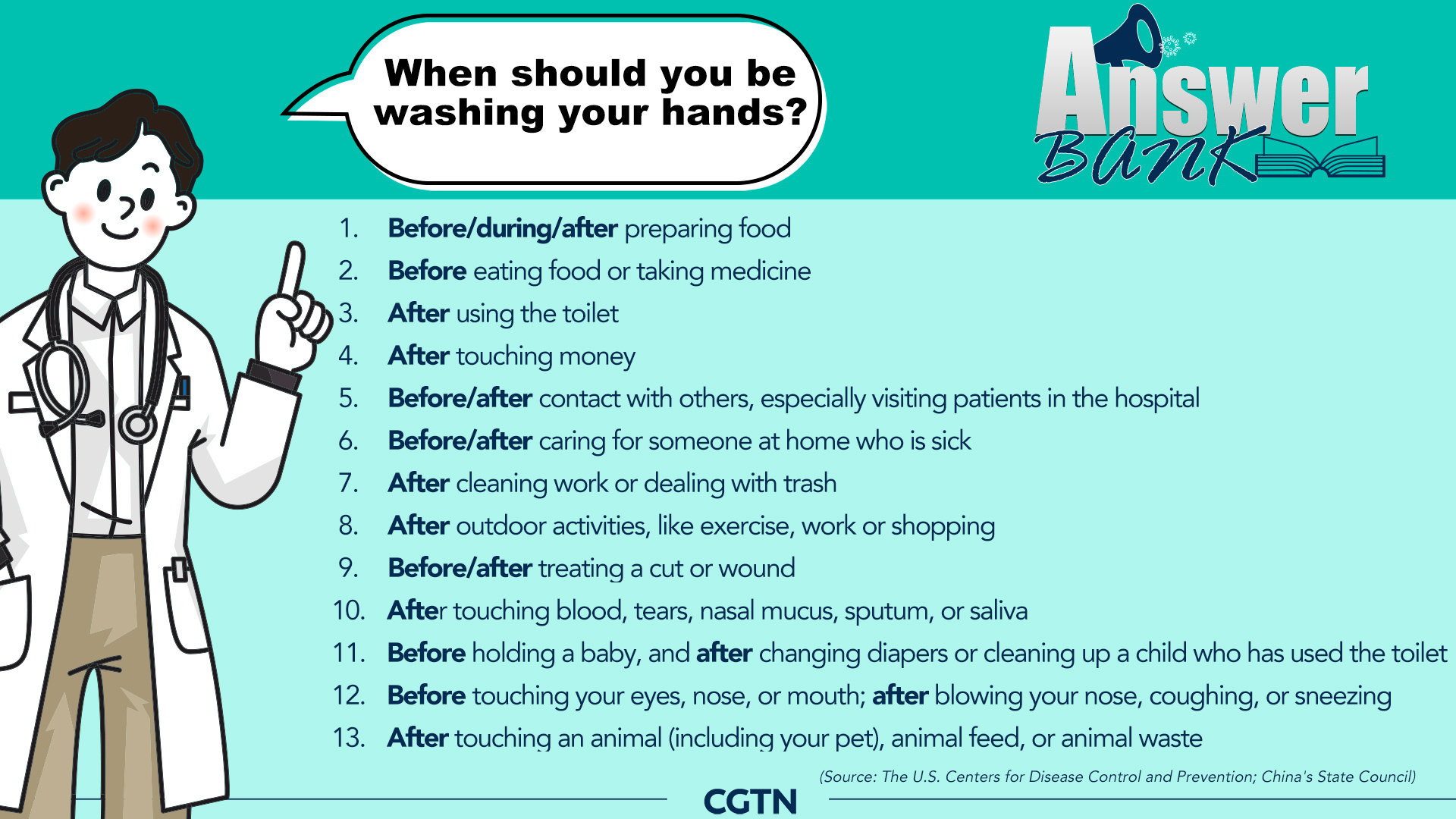
The simple act of washing your hands has been increasingly important during the COVID-19 outbreak. It's one of the most effective and protective measures to prevent getting infected.
And here are the key times that you should wash your hands:
1. Before/during/after preparing food
2. Before eating food or taking medicine
3. After using the toilet
4. After touching money
5. Before/after contact with others, especially visiting patients in the hospital
6. Before/after caring for someone at home who is sick
7. After cleaning work or dealing with trash
8. After outdoor activities, like exercise, work or shopping
9. Before/after treating a cut or wound
10. After touching blood, tears, nasal mucus, sputum, or saliva
11. Before holding a baby, and after changing diapers or cleaning up a child who has used the toilet
12. Before touching your eyes, nose, or mouth; after blowing your nose, coughing, or sneezing
13. After touching an animal (including your pet), animal feed, or animal waste
Use a disinfecting product that contains alcohol when you cannot wash your hands with water and soap.
The novel coronavirus is not resistant to acid or alkali, and is sensitive to organic solvent and sanitizer. Alcohol with a 75-percent concentration can effectively inactivate the virus, and disinfectant products containing such an alcohol concentration can thus be an alternative.








 User Center
User Center My Training Class
My Training Class Feedback
Feedback












Comments
Something to say?
Log in or Sign up for free